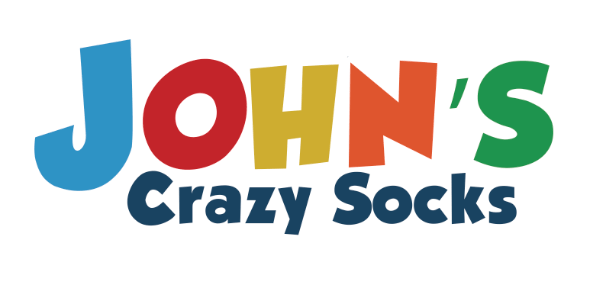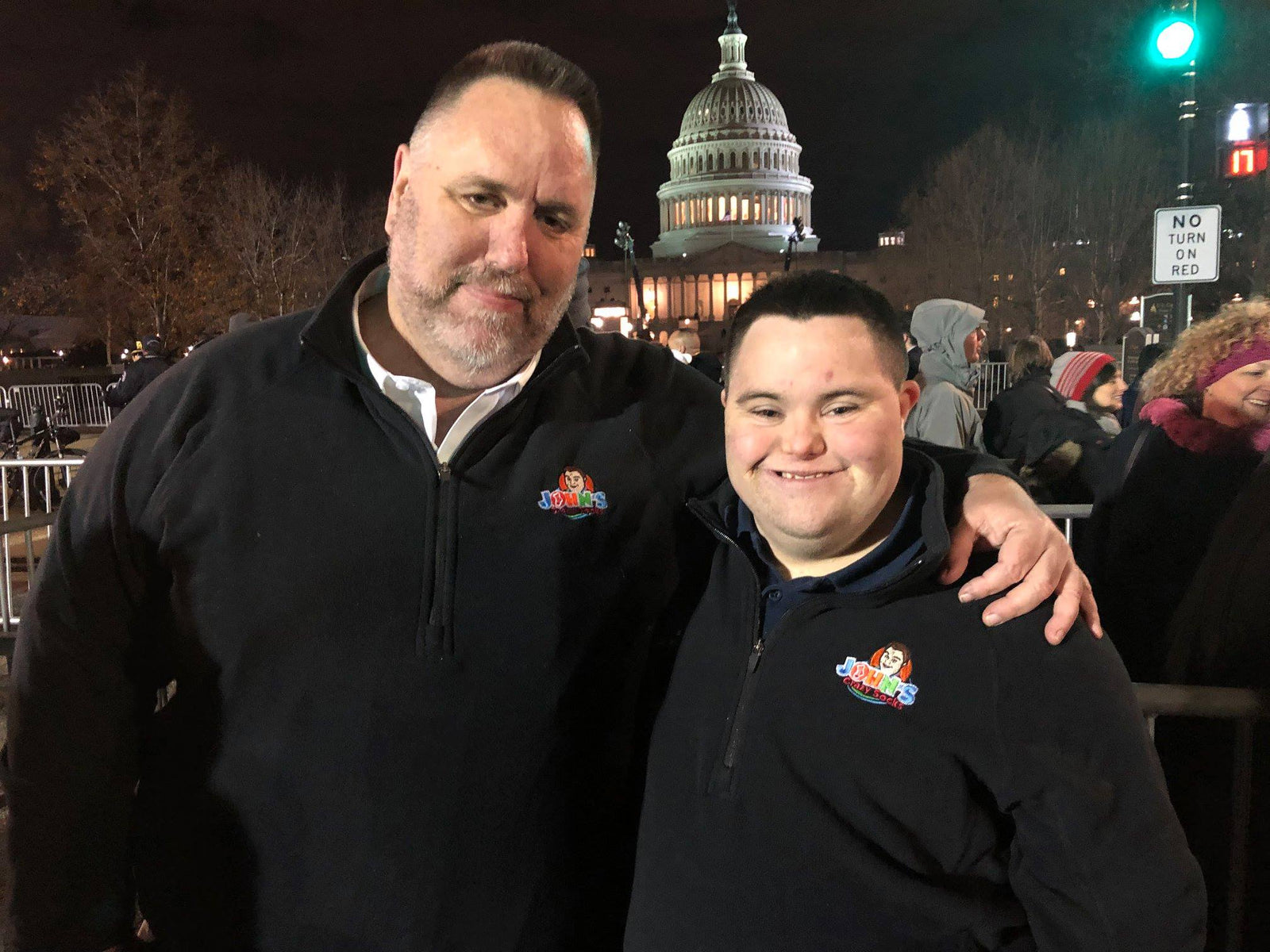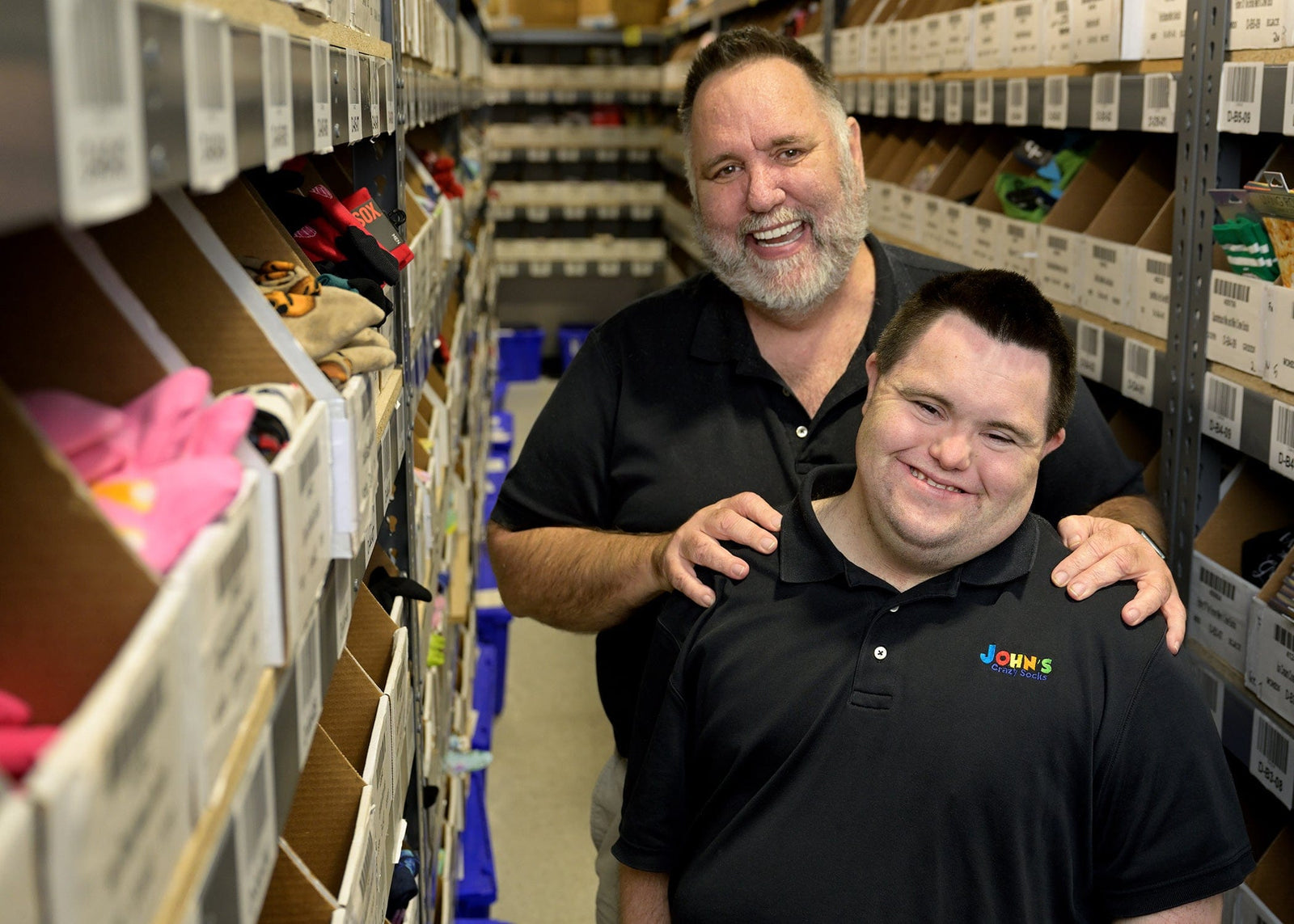The U.S. Department of Labor has proposed a rule change that would eliminate the subminimum wage for people with a disability. They are taking comments on that proposal through today, January 17.
Our co-founder John Cronin and John’s father and co-founder, Mark X. Cronin, submitted comments in support of the proposed rule change. We want to share their comments.
John Cronin’s comments on the proposed rule changes to the subminimum wage:
I want to comment on the proposed rule changes to section 14c of the Fair Labor Standard Act of 1938 that would eliminate the subminimum wage. I am an entrepreneur and business owner. I also have Down syndrome. I created a business with my Dad called John’s Crazy Socks. More than half my colleagues have a differing ability.
The subminimum wage is unfair and wrong. Everyone should be treated with dignity and respect. Everyone should be paid a fair wage. The subminimum wage treats people with differing abilities as if they are less than human, less than everyone else. That is wrong.
When companies pay people with a disability less than minimum wage, they treat that person badly. They are taking advantage of their workers. That is wrong.
I support changing the 14c rules. Treat people fairly.
Mark X. Cronin’s Comments on the Proposed Section 14(c) Rule Change
I am writing in strong support of the proposed changes to Section 14(c) of the Fair Labor Standards Act, which allows for the payment of subminimum wages to people with disabilities. I write as both a parent and the owner of a business that employs people with differing abilities.
Section 14(c) became law as part of the Fair Labor Standards Act of 1938. That was a different era. If my son John, who has Down syndrome, had been born then, he most likely would not have survived infancy due to the medical challenges he faced. But John was born in 1996. Because of advancements in medicine, he underwent intestinal surgery at three days old and open-heart surgery before he was three months old—interventions that allowed him to thrive.
In 1938, a child like John would have been institutionalized and denied an education. Instead, John attended preschool, received an excellent education in our local public school system, and was prepared for a full life.
If John had been born in 1938, he would not have had the opportunity to work. Today, not only has John worked two jobs, but he also started his own business with me, John’s Crazy Socks. Together, we built the world’s largest sock store, which now employs 34 people, 22 of whom have differing abilities.
At our business, we pay all employees a fair, market-rate wage based on their performance. We don’t give out jobs—everyone earns their place. Our employees take pride in their work, and we pay above minimum wage because they deserve it. This is what true inclusion looks like.
Section 14(c), however, has perpetuated an outdated and unjust system. Many organizations established sheltered workshops under this law, where people with disabilities are paid far below minimum wage—sometimes as little as five cents an hour. These workshops were supposed to be a stepping stone to full employment, but in reality, they became a trap. Few workers ever transitioned to competitive, integrated employment.
Today, people with differing abilities are ready, willing, and able to work. Advances in medicine, education, and public awareness have made it possible for individuals with disabilities to contribute meaningfully in the workforce. Leading organizations like Melwood and Goodwill Industries have recognized this and moved away from the sheltered workshop model toward true, competitive employment.
Consider this example: A sheltered workshop in Las Vegas assembled toiletry kits for hotels on the Strip. The executives running the workshop earned full salaries, and the casinos made substantial profits. Yet the workers with disabilities were paid subminimum wages. This inequity is unacceptable.
We must focus our energy, attention, and resources on preparing people with disabilities for full employment and connecting them to meaningful jobs. Section 14(c) certificates are not a stepping stone—they are a barrier that holds people back. It is long past time to eliminate this outdated and harmful system.
By ending the use of 14(c) certificates, we can create a fairer and more inclusive society where everyone has the opportunity to thrive.
About John’s Crazy Socks
For more information about John’s Crazy Socks, visit our webpage, Facebook page, Instagram account, TikTok or YouTube channel. You can also contact us at 631-760-5625 or via email at service@johnscrazysocks.com.




